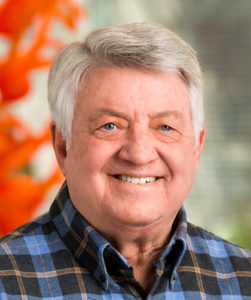Patient Council
Serving as a liaison between the leadership and our community, the Patient Council is an integral component of the Kidney Cancer Program
Mission
Assist program leadership in its mission to provide outstanding and holistic patient care
Assist fellow patients and caregivers in navigating the kidney cancer landscape
Help raise community awareness about the disease
Support research efforts by providing patient experiences and impacts
Vision
Assist
- Guide kidney cancer patients through treatment
- Provide emotional support
- Orchestrate and coordinate volunteer efforts with patient needs
- Connect patients to support services
Educate
- Raise awareness about kidney cancer in our community
- Foster and support community initiatives
- Develop educational programs
- Advocate for research support
Improve
- Identify and prioritize areas of improvement
- Serve as a vehicle for patient concerns
- Act as agents of change to help implement patient suggestions
Engage
- Promote engagement with our community
- Consider and support initiatives by members of our community
- Help coordinate fundraising events
Advocates
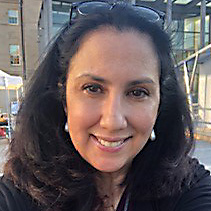
A native of Bogota, Colombia, my father was diagnosed with advanced renal cancer in 2011. He lost his battle with the disease nine months later. During those months of treatments, my background in microbiology proved helpful as I received a hands-on education in kidney cancer, from learning to recite a pharmacopeia of drugs to understanding and navigating the complex treatment regimens and associated side effects. Perhaps hardest for me to wrap my hands around was the general lack of awareness and that there was – and still is – no method for early detection when the cancer is most treatable.
Despite the toll kidney cancer took on my father and our family, it exposed us to an amazing community of people who did their best to help in any way they could. It also left me with an unintended gift – experience as a kidney cancer advocate and the empathy for those who need one. Currently living in the Washington, D.C., area, I am passionate about patient education and helping build awareness of this disease. Over the years, I have served as a patient advocate with the AACR (American Association for Cancer Research), ASCO (American Society of Clinical Oncology), the American Cancer Society and the Kidney Cancer Association.
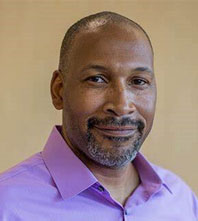
I became interested in cancer research advocacy and patient advocacy when I noticed significant differences in patient experiences after a cancer diagnosis. Having earned a doctorate in health care administration, my research interests lie in health education, health promotion, and cancer prevention and healthier lifestyle interventions, with a focus on underserved populations. I hope to bring attention to equity in cancer care as well as support services for all those diagnosed with cancer and their caregivers. I have published articles in peer-reviewed journals on the topics of community-based participatory research with use of peer educators from minority populations.
A significant part of my advocacy efforts involve collaborating with national organizations and state agencies. Through my participation in national meetings and review panels, I’m able to share information with researchers about how cancer impacts patients and their communities culturally.
I currently serve as Chair of the ASCO (American Society of Clinical Oncologists) Health Equity & Outcomes Committee, and I am a panel member with the Canadian Institutes for Health Research (CIHR). In addition to working with the Patient-Centered Outcomes Research Institute (PCORI) as a Merit Protocol Reviewer, I am a past member of PCORI’s Clinical Trials Advisory Panel. I am actively involved with the Society of Urological Surgical Associates (SUNA) and the American Association for Cancer Research (AACR), and I review manuscripts on behalf of the Urologic Nursing Journal and the Journal of Health Care for the Poor and Underserved.
Professionally, I work in public education with the Austin ISD in Austin, Texas. I am also an adjunct professor at Huston-Tillotson University.
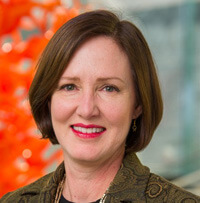
My passion is serving as a bridge between the patient and scientific communities. I have become increasingly involved in patient advocacy following my diagnosis with breast cancer in 2004 and subsequent treatment at UT Southwestern, and now my goal is to help patients and those who love them understand all kinds of cancer research, from basic science through clinical treatments.
Educated as a biomedical engineer, I appreciate medical research, and I volunteer as a patient advocate for many different cancers in a number of different capacities, including ECOG-ACRIN, part of the National Cancer Institute (NCI) National Clinical Trials Network, and the Advocate Engagement Working Group for the NCI Council of Research Advocates, the advocate advisory board to the Director of the NCI. For the past five years, I have been the National Patient Advocate for the NCI Physical Sciences-Oncology Centers program, where I directed advocacy activities at all 12 centers within the network. Recently I became one of four founding editors of a new journal, Convergent Science Physical Oncology, which will include the patient voice in every aspect of the publication and review process.
I am excited by the opportunity to participate as a member of the KCP Patient Council and to work with a dedicated group of researchers, clinicians, and advocates to develop an active and engaged community that will make a significant impact in the lives of those affected by kidney cancer.
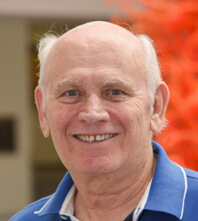
I joined the Kidney Cancer Program Patient Council as a volunteer at the Harold C. Simmons Comprehensive Cancer Center because when I had my first appointments with Dr. Brugarolas, two volunteers, Merlinda Chelette and Tony Towler, spent some very precious moments explaining what we were up against, and I knew I wanted to get involved. They taught me that a “new normal” had to be established now that my kidney cancer had metastasized and I was stage 4. I learned from them that my treatment was going to require patience, and above all, trust that UT Southwestern was the right place for a solution.
During my first meeting with Dr. Brugarolas, I told him I was willing to volunteer for clinical trials if they became available. After one year on Votrient, my cancer took off in my lungs, diaphragm, and scapula. I was offered a chance to be on the RADVAX trial. This immunotherapy has worked far beyond my wildest hopes. Merlinda, Sophia, and Tony encouraged me to join as a volunteer for the KCP Patient Council. This journey of positive results has been so rewarding, and due to being more involved in the KCP, I’ve learned more about kidney cancer than I thought I would. I am so pleased to be returning the love that UT Southwestern has shown for me.
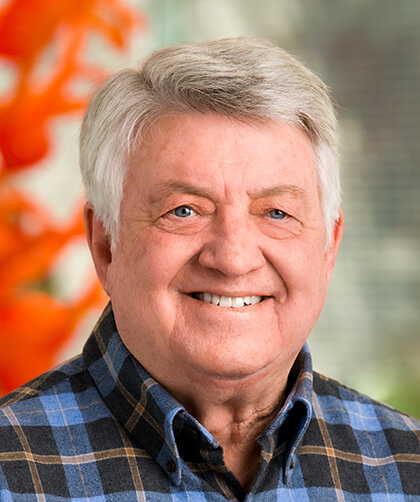
I was diagnosed with kidney cancer in 1999 and underwent a nephrectomy to remove the tumor and my right kidney. Not long after, the disease metastasized to my lungs.
My wife, Mary, and I have spent some 19 years now pursuing any and all medical care available and necessary to survive, always hopeful and prayerful that a cure would eventually be developed. Our journey led us to the UT Southwestern Kidney Cancer Program and Dr. Brugarolas in September of 2014. During the ensuing clinic visits, we had the opportunity to meet and get to know some of the program’s patient advocates, including Tony, Larry, and Sophia. As we shared our stories and personal experiences with one another, they eventually asked if I might consider joining them.
For Mary and myself, it felt in keeping with our hopefulness and optimism that the Kidney Cancer Program offers and delivers just exactly that. So we decided to do our part and play a more active role by joining the team. It’s such a unique program – that it has a Patient Council and its own team of patient advocates and is a testament to a much broader spectrum of care.
I enjoyed a great career as a sales executive prior to my retirement, but the work I am doing now, as a patient advocate, helping other kidney cancer patients, survivors, and their caregivers, is far more rewarding to me personally. If I can help answer someone’s questions, lift their spirits, or just reassure them life isn’t over because of a cancer diagnosis, it lifts my spirits in return.
I’ve been blessed to have a support system with me throughout this journey. My wife has been there every step of the way, and I could not imagine this journey without her. I believe all our support systems – spouses, family, friends, doctors, nurses, and fellow cancer survivors – are key to a patient’s well-being, and this program offers that to us all.
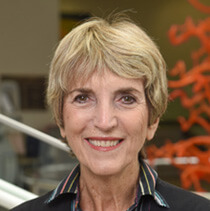
I am a kidney cancer survivor, not in the literal sense of the term, but I am the widow of a former kidney cancer patient. I bring firsthand knowledge of the challenges cancer presents to patients and caretakers. I am hopeful that by volunteering my support and personal understanding of the journey that the patient and family are on, they will know that they are not alone, and that we can help each other. I want to make my role as a patient advocate a part of my husband’s legacy, and I know it would make him happy for me to help others navigate this experience.
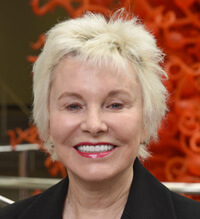
As a wife of 54 years, mother of four and grandmother of 13, my life has had many unexpected twists and turns. However, the most surprising twist was a diagnosis of kidney cancer. When a diagnosis of kidney cancer is received, whatever the stage, it can be a frightening time … certainly an unexpected turn in this journey of life.
I had so many questions that needed answers, some critical and some trivial, but each were important to me. Drs. Brugarolas and Cadeddu, along with other Cancer Center patients themselves, compassionately answered my questions and calmed my fears. My journey with them has been one of insight, healing, and inspiration.
Today I am cancer-free and grateful that God put me in the care of the wonderful doctors and staff at the Kidney Cancer Program of UT Southwestern. Each doctor is not only highly skilled in his specialty, but has a deep concern for their patients. While cancer is an awful illness, UTSW offers the cutting-edge technology in a most loving, caring environment. The Simmons Cancer Center at UTSW is a place where people who are facing the worst battle of their lives can find exceptional treatment from extraordinary people!
It is an honor to serve on the KCP Patient Council and to be a volunteer with the KCP at UTSW. I am thankful to have the chance to now help those who have received a cancer diagnosis. While it can be a scary journey, it is a journey that the patient and family do not have to walk alone. Dr. Rachel N. Remen said, “The most basic and powerful way to connect to another person is to listen. Perhaps the most important thing we ever give to each other is our attention.” It is a privilege to be able to listen and then to help in any other way possible. I am extremely grateful for this opportunity.
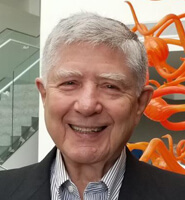
Born, raised, and educated in Germany, I left the country in 1963 to work for the French subsidiary of a major German corporation. After a 30-year career managing company operations in a number of different countries, my wife and I finally retired to Florida in 1997. Not long after, we relocated to Dallas to be near our daughter and my wife’s mother. I now had time to take up hobbies and pursue personal interests, however, it did not satisfy me. I wanted to do something meaningful and rewarding. Volunteering with a hospice organization and visiting patients during the last phase of their lives provided me with that opportunity.
In 2011, my wife fell ill with kidney cancer. It was a very complicated case and an extremely dangerous variety of the disease. We owe her life to the highly competent and caring doctors at UT Southwestern, who removed one of her kidneys and eradicated the disease. For seven years she was cancer-free until suddenly, in 2018, it came back in her lungs. State-of-the-art radiation helped prevent the tumors from spreading.
As a caregiver, I know that the disease does not only affect the patient but also the whole family. Out of gratitude for saving the life of my wife, I decided to volunteer for the Kidney Cancer Program, giving patients encouragement and hope, knowing that strengthening the fighting spirit can be a decisive factor in stabilizing the condition of a person who is battling cancer.

